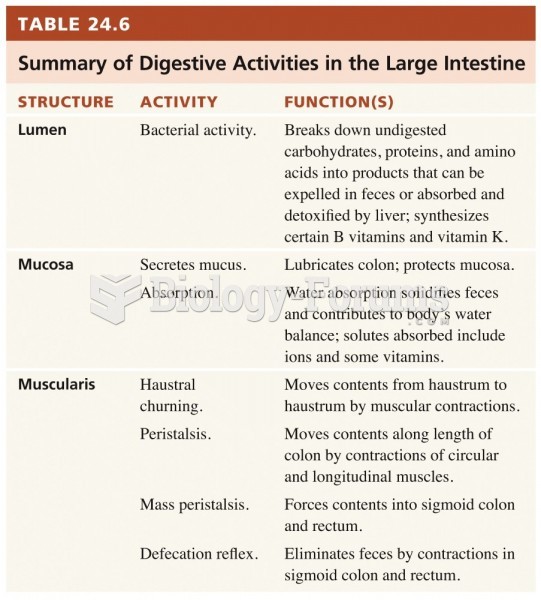|
|
|
Certain topical medications such as clotrimazole and betamethasone are not approved for use in children younger than 12 years of age. They must be used very cautiously, as directed by a doctor, to treat any child. Children have a much greater response to topical steroid medications.
Cancer has been around as long as humankind, but only in the second half of the twentieth century did the number of cancer cases explode.
The first oral chemotherapy drug for colon cancer was approved by FDA in 2001.
Children of people with alcoholism are more inclined to drink alcohol or use hard drugs. In fact, they are 400 times more likely to use hard drugs than those who do not have a family history of alcohol addiction.
Medication errors are more common among seriously ill patients than with those with minor conditions.







